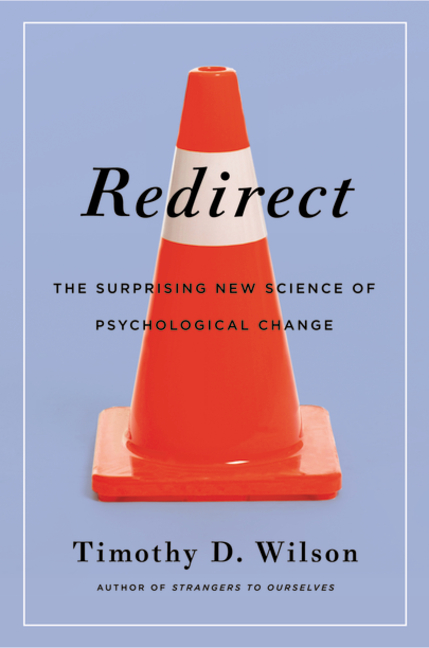New Way to Think About Psychological Change
In Redirect: The Surprising New Science of Psychological Change, social psychologist Timothy Wilson reveals insights from three decades of empirical evidence indicating that what is true of culture is also true of individuals:
Our experience of the world is shaped by our interpretations of it, the stories we tell ourselves, and these stories can often become so distorted and destructive that they completely hinder our ability to live balanced, purposeful, happy lives, so the key to personal transformation is story transformation.
Let’s pause here and observe that this seems pretty commonsensical. What’s more, most of us believe that our character and circumstances are so unique that the universal human psychological flaws, biases, and shortcoming we are keenly aware of simply don’t befall us personally. Yet, in one domain of life or another, we find ourselves stuck in thought patterns and behavioral cycles we lack the tools to escape. This, Wilson demonstrates, is a pathological storytelling problem based on the stories we’ve led ourselves to believe and the behaviors that stem from them.
We could solve a lot of problems if we could get people to redirect their interpretations in healthier directions.”
Of course, this isn’t news to anyone who has ever dabbled in cognitive-behavioral therapy — an entire branch of psychotherapy designed to address precisely that. But Wilson argues that there’s a new way to redirect people’s personal interpretations, one that doesn’t require one-on-one sessions and can address a wide array of personal and social problems, from severe trauma to everyday distress.
This new approach is based on the work of Kurt Lewin, who helped found the field of social psychology in the 1930s and 40s, and is rooted in three specific psychological interventions: story-editing — a set of techniques designed to reshape people’s narratives about themselves and the world in a way that results in lasting behavioral change story-prompting — redirecting people down a particular narrative path with subtle prompts; and do good, be good — an approach that dates back to Aristotle, premised on changing people’s behavior first, which in turn changes their self-perception of the kind of person they are based on the kinds of things they do.
Wilson shows how these story-editing techniques have been used to make people happier, improve parenting, solve adolescent behavioral problems, and even reduce the racial achievement gap in schools.
Wilson describes findings in his recent RSA talk.
images via Flickr Commons
Source:
Redirect: A New Way to Think About Psychological Change | Brain Pickings


